Businesses have been shifting their focus from sales to customer relations lately. The change in trend is clearly visible in the customer-centric environment of businesses compared to the sales-centric approach once.
This shift in business mindset is not a standalone one. A study revealed that over 86% of B2B buyers are willing to spend more for a good customer experience. The below consolidation of other startling statistics and trends emphasizes why businesses changed their approach and should strengthen their customer relationships.
- According to a 2019 study, 80% of B2B buyers are as much interested in customer experience as they are in their business itself.
- Stressing the significance of content marketing, a Forrester study revealed that over 82% of B2B buyers consumed at least five content pieces before making a purchase decision.
- In a 2017 survey, over 90% of the customers expressed their willingness and desire to buy from a business with a superior mobile UX experience.
- 90% of surveyed customers expressed their inclination towards using an online knowledge base, given the availability, accessibility, and personalized content.
All these statistics reveal how customer satisfaction and healthy customer relationships are important at every stage of the customer journey. Despite multiple customer relationship channels and countless tips on the same, some businesses find it difficult in keeping their customers satisfied throughout. This blog emphasizes the significance of customer relationships for B2B businesses and the top 5 tips to strengthen your customer relationships.
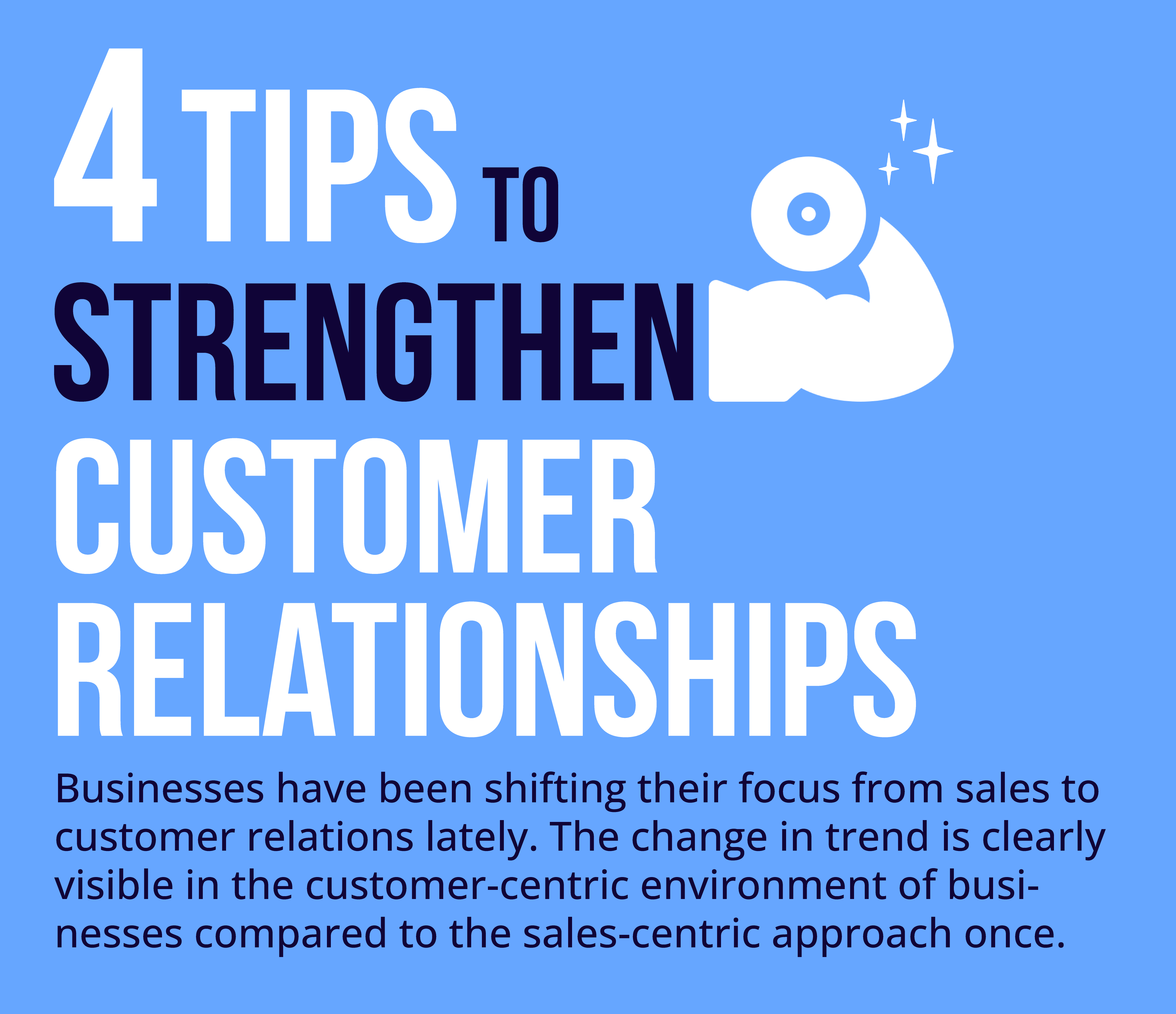
Tips To Strengthen Customer Relationships
Network building
All businesses have one thing in common: they depend on customers to keep the doors open. The more people you have buying from you and recommending your business, the more successful you are.
While this may seem obvious, many businesses do not take a systematic approach to make sure their customers know about them and feel good about their purchases.
When it comes to building relationships with customers, one size does not fit all. You can't just buy a ton of Facebook ads and call it a day, or throw a party and hope everyone will come.
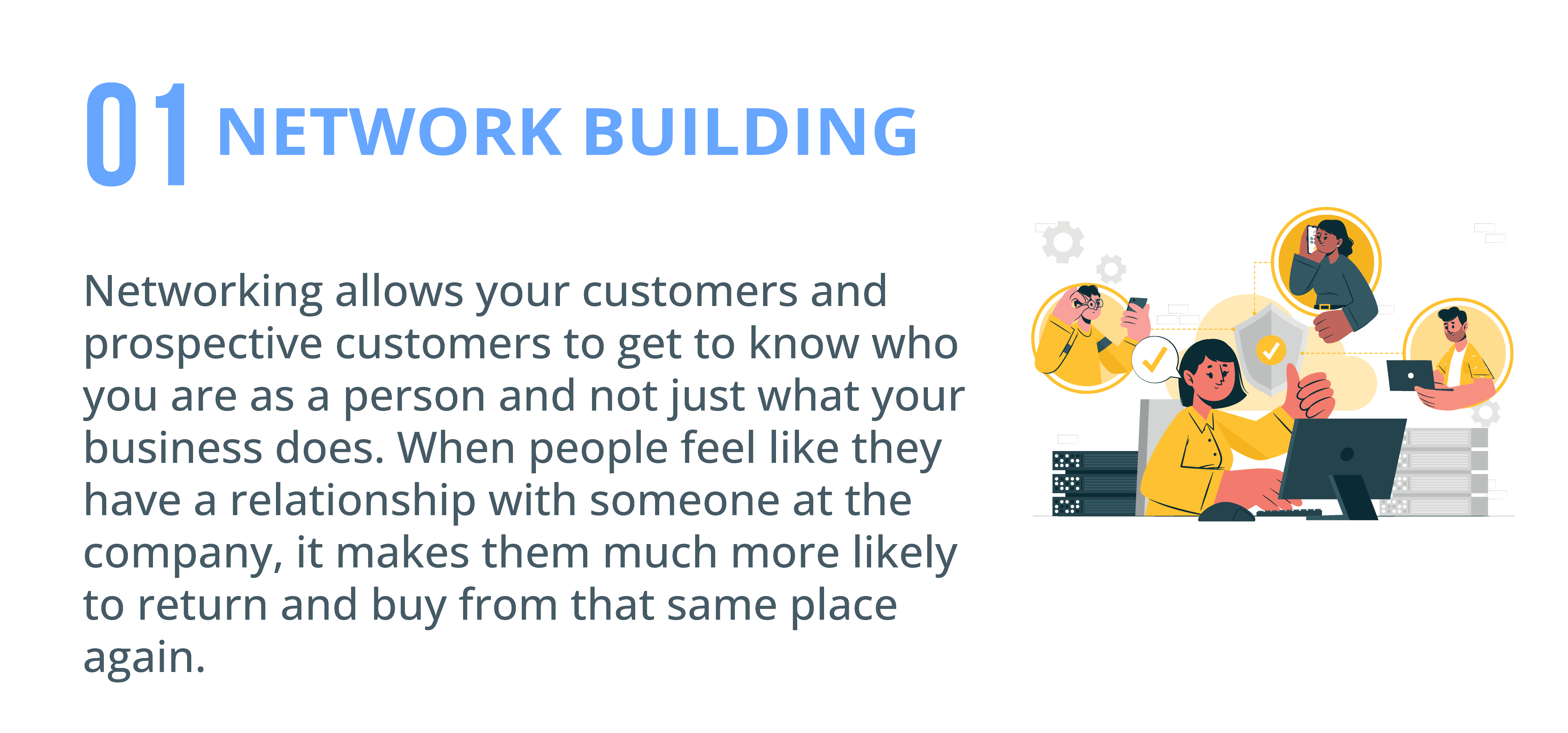
A successful marketing strategy requires some serious creativity, preparation, and legwork. And guess what? Networking is your secret weapon for building customer relationships that stand the test of time.
Networking allows your customers and prospective customers to get to know who you are as a person and not just what your business does. When people feel like they have a relationship with someone at the company, it makes them much more likely to return and buy from that same place again.
Email marketing
Email marketing is one of the most important strategic tools that a business can use to strengthen its customer relationships. Here are some ways that email marketing can do this:
- It's convenient. Email is always open, always there, and always on your phone.
- Email marketing is more targeted than any other form of marketing, so you know you are reaching the right people.
- You don't have to be worried about creating a brand new product or service when you are using email marketing—you can focus on building your relationship with customers instead.
- Email marketing allows you to deliver content in a format that is familiar and comfortable for your customers. This makes them more likely to pay attention and engage with it, which helps build trust.
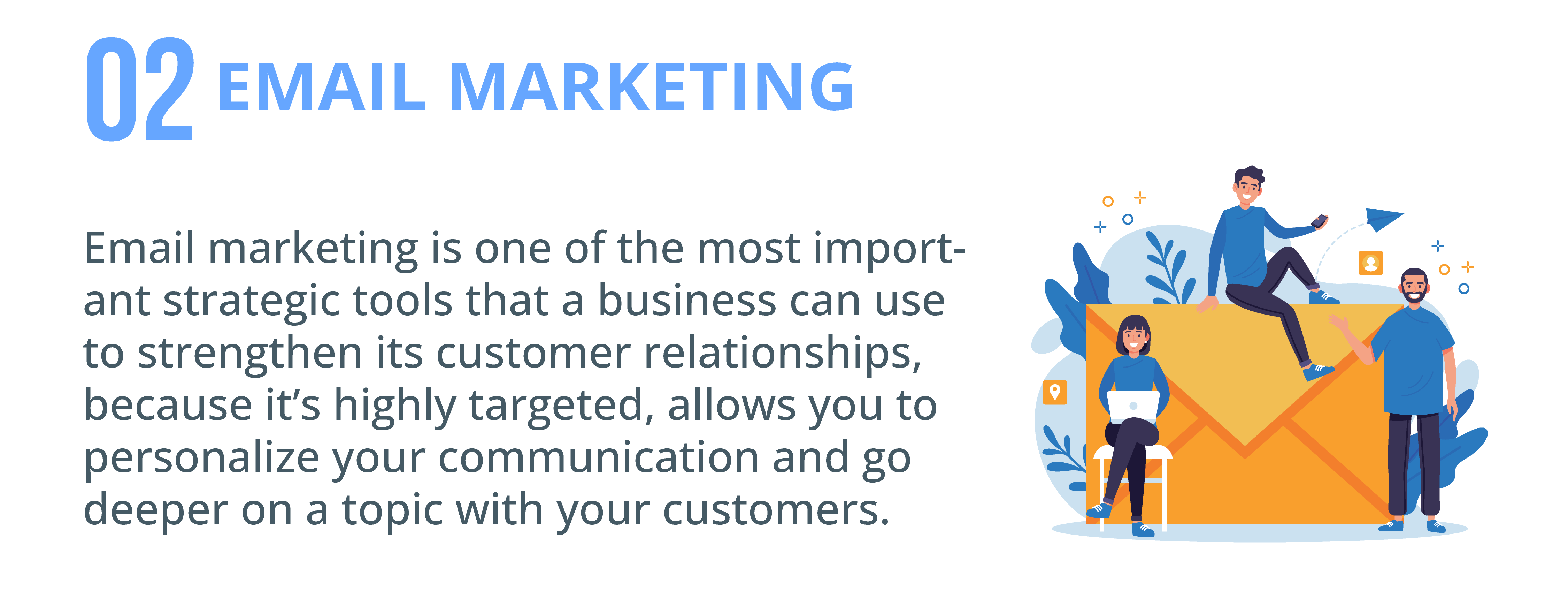
- Email helps businesses avoid the risk of being forgotten in a crowded marketplace. You will always be top-of-mind for your customers, even if they are not actively looking for you!
- Email marketing is an easy way for customers to take action, which means that businesses can make their sales pitch without the pressure of making it at just the right time or place.
- There are no "wrong" opportunities for email—it's always a good time to tell your customers about something new you have got going on!
Collaborative selling
Collaborative selling is a style of selling that prioritizes the needs of the customer, and therefore requires a high level of engagement between salesperson and customer. It can be used to reinforce relationships with current customers, and it is also an excellent way to expand your customer base, because customers who feel like their needs are being met will recommend your services to others.
The collaborative approach to selling involves meeting your potential customer halfway by trying to understand their needs before you begin proposing solutions. In the collaborative process, instead of making assumptions about what will work for a potential customer, you encourage them to ask questions and brainstorm with you as equal partners in a relationship. This allows you to learn more about their needs than you would in a more traditional sales process, which means you are better equipped at finding the right solution for them.
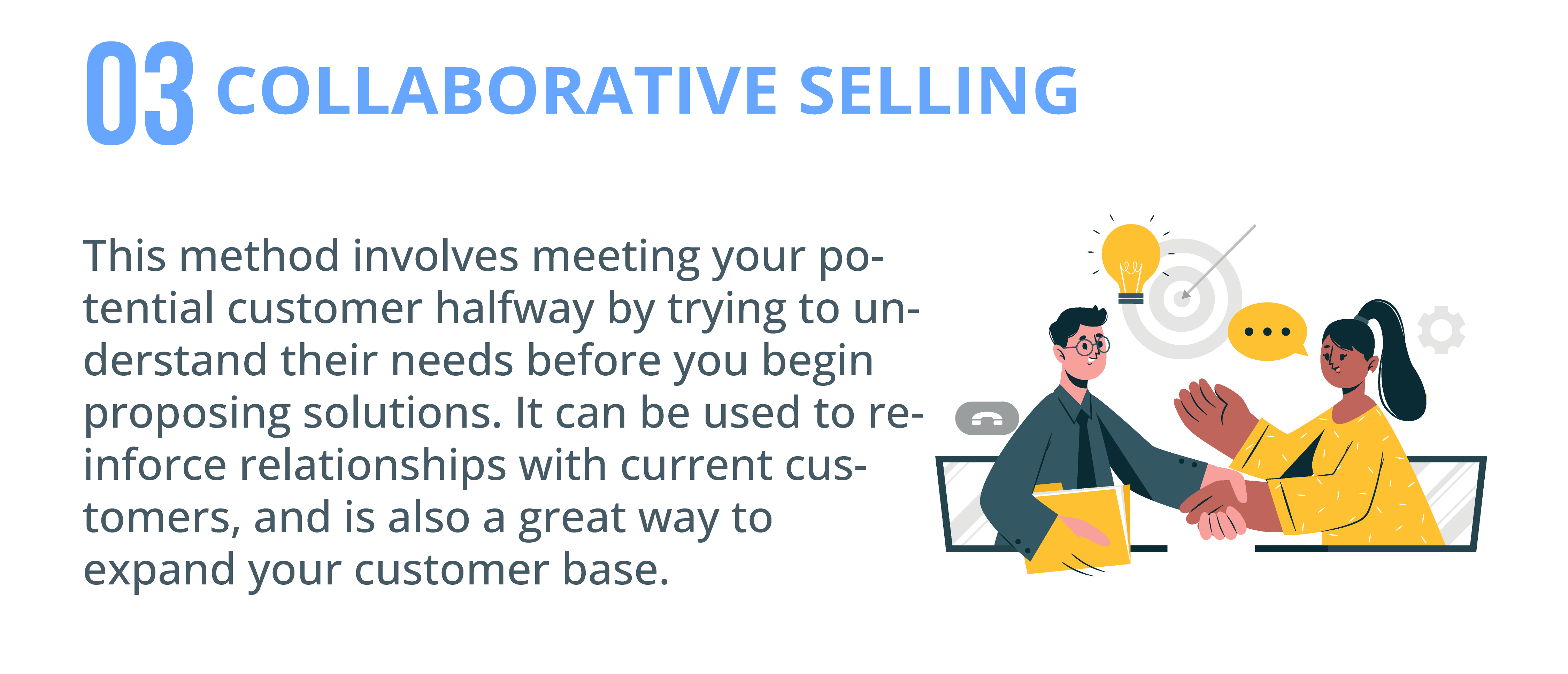
This approach is particularly useful when consulting on complex or high-value products or services. Since your client knows the most about their business, it would be impractical for a salesperson to sell without getting input from the client first.
Education + marketing
We all know that a business needs to be consistently marketing to its customers. But we also all know that when we are constantly being sold to, it gets annoying. In fact, sales pressure can be pretty antagonistic. Why are some businesses so insistent on constantly hitting their customers with a sales pitch? Are they really so desperate for money they can't leave their customers alone?
In reality, a business needs to make money in order to succeed and grow. But there is also no denying that an endless stream of "buy my product" content doesn't exactly make for a healthy relationship with your customer base. One possible solution is a combined content marketing approach that incorporates both educating and selling.
Educating your readers offers immense benefits to your business.
- Providing educational content helps establish you as an authority in your field.
- It shows your customers that you care about them and want to help them make well-informed decisions.
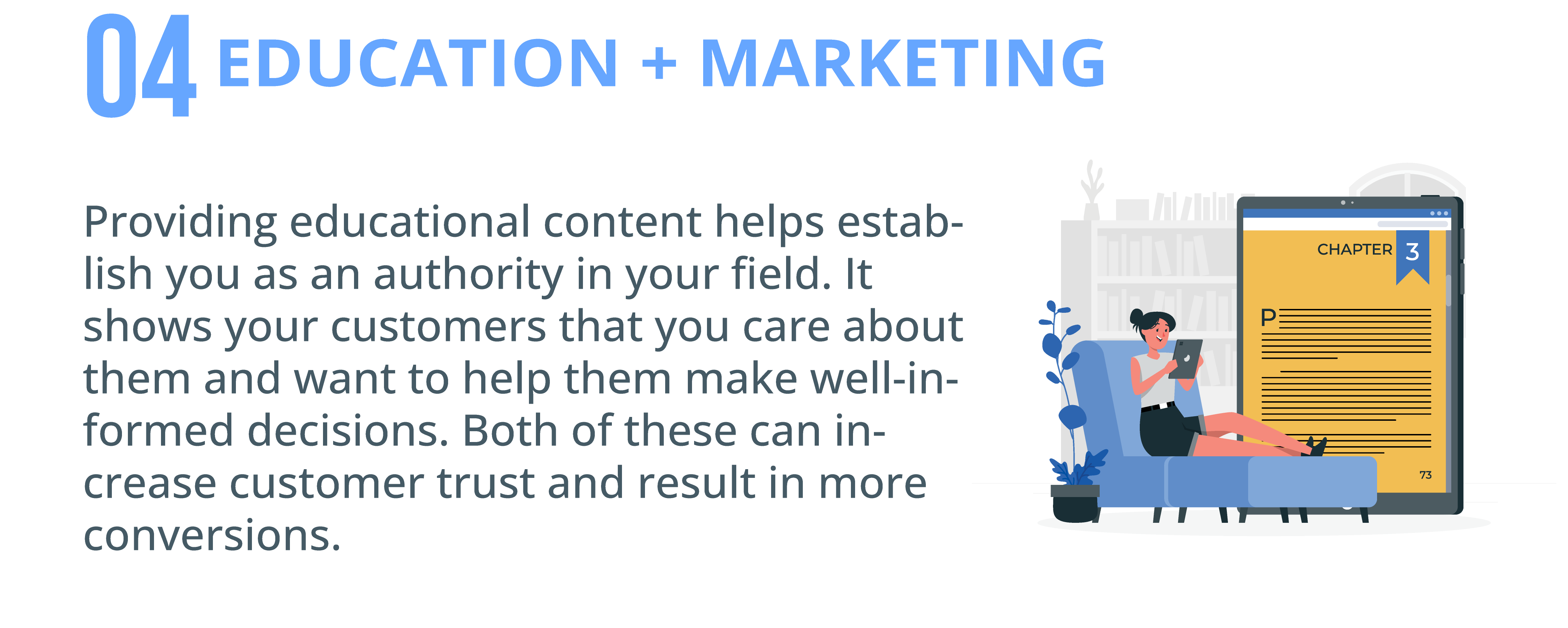
Both of these can increase customer trust and result in more conversions.
Marketing content is more focused on selling than education, but it can still be very effective if done correctly. Marketing content draws attention to products or services by highlighting features and showing off the benefits they offer buyers. There is nothing wrong with this type of content—it is just a different style than educational content.
A combination of both types of content ensures that you are providing value for your customers every time they come to your site or read your emails. This makes them more likely to not only stay loyal to your brand, but also recommend you to their friends and family.
Conclusion
In a B2B business, your customers are your lifeblood. You rely on them for revenue and they rely on you for the same. You are partners in a way, that’s what B2B is about in reality (two businesses working together to maximize the profits of a service-seeking business), and that means one thing: you need to be treating your customers right.
While a company's reputation is crucial, especially for B2B businesses, building customer relationships and establishing a good track record is arguably even more vital to the success of a business. The key is to get on the right track and set up effective systems in advance to deal with customer issues as they arise instead of delaying remediation to maintain good customer relationships.


